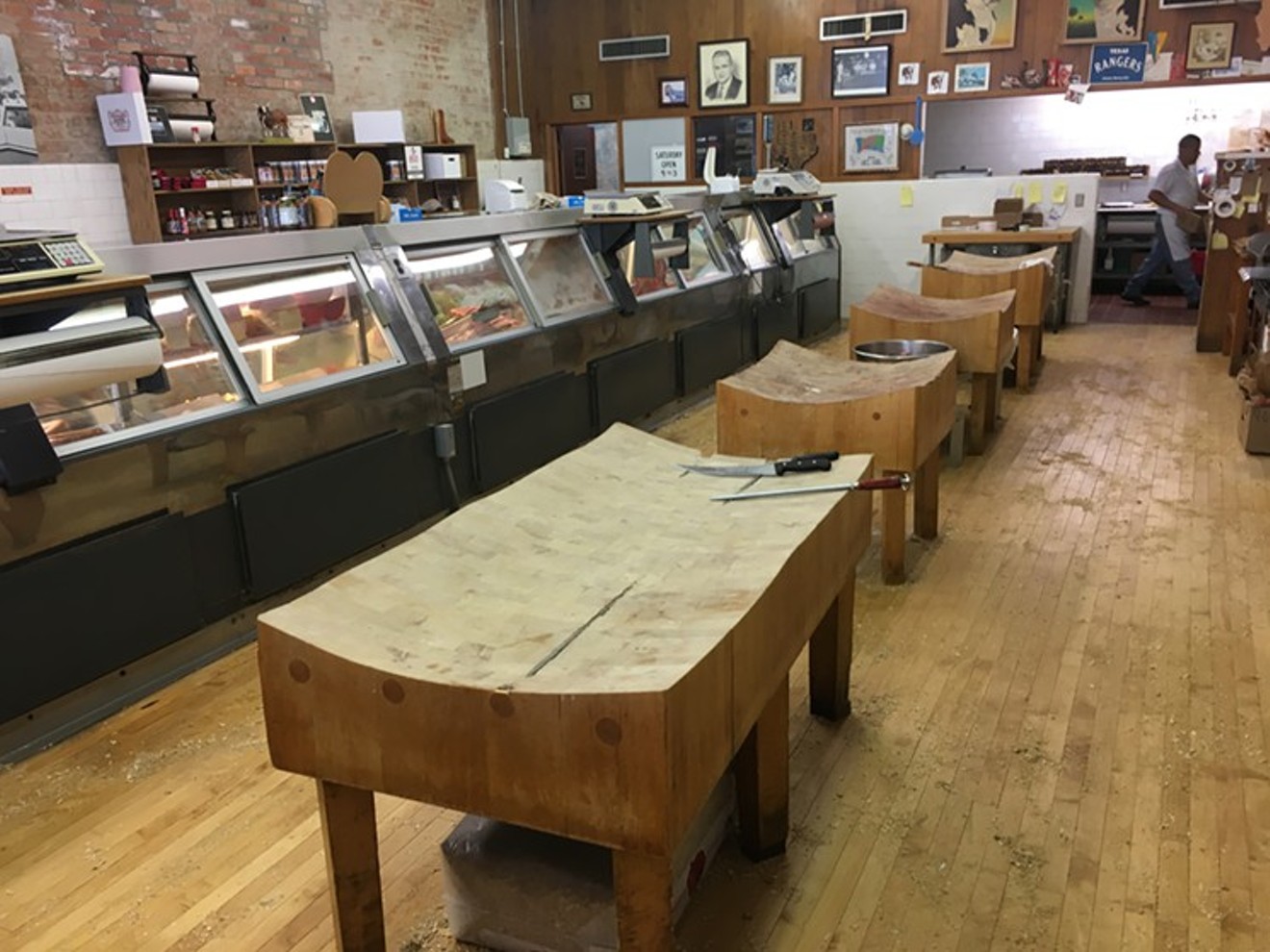In February 2017, the cutting block closest to the door was worn down to show the metal beneath like bones. It was 90 years old at the time, and the staff of Rudolph’s considered throwing it a retirement party. Imagine it: 90 years of life — the callused hands and blood and blades — passing into its molecules. It must have some kind of memory, right?
It’s the first thing that comes to mind after two years of tracking the progress, and the history, of the decades-old joints in Dallas for our series All-American, the memories that stick to your mind long after you’ve asked a restaurant just how in the hell they made it. How did you make it happen? How did you keep going? It's easy, especially in Dallas, to run off to the next new thing and forget about the institutions that have held on even as neighborhoods change. With this series, we wanted to go back, to find out what makes these survivors tick. To learn their history-filled stories and how their Dallas lives run parallel to our own.

Before 3902 Maple Ave. became The Grapevine Bar — which celebrated 22 years of age this year — it was home to Herrera's. This photograph is from the '80s.
courtesy Michelle Honea
In two years of the column, nearly each and every restaurant owner (we publish a new column once a week, roughly) has asserted two things: Their staff is family, some relationships dating back before the restaurant opened its doors. The second point is always about time and the way generations pass through their room. For many, the kids of the first kids who came still patron the joint. For some, you’ll find the kids of the kids of the kids. It’s sentimental for these owners because it’s everything to them, and often, it might be even more to the people who come into the joint. Ask about it, and you might hear about weddings that have happened there — and the weddings of those couples’ children.
If you ask, you learn to listen. I learned, and am very much still learning, to shut up. Because it’s not about you. Within these restaurateurs' struggle for an American business, we have created a memory at the restaurant. We know because it’s carved right there into the damn wood.











